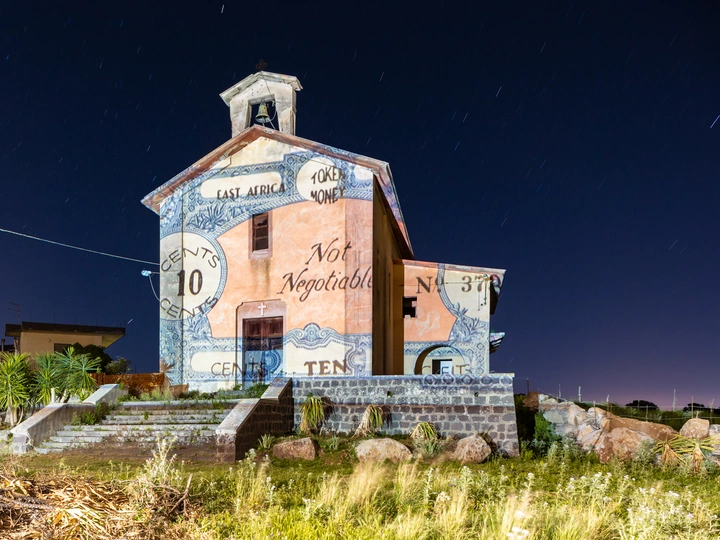My Fascist Grandpa

Laura Fiorio
Ginevra Ludovici
Mario Margani
Laura Fiorio (1985, Verona, IT) is an artist working with photography, installation and relational practice.
Her projects, developed through choral narratives, interact with existing archives and materials, questioning the power dynamics embedded in the editing process of images as memories, their instutionalized use and hence their critical and subversive potential.
She holds a BA in Performing and Visual Arts (IUAV, Venice), an MA in Film and Interactive Media (Middlesex University, London) and a MA in Art and Social Work (Alice Salomon Hochschule, Berlin). Her work has been internationally exhibited, presented and published independently or in collaboration with institutions including Triennale (Milan, IT), Art and Architecture Biennale (Venice, IT), CeCuT (Tijuana, MX), European Center for Constitutional and Human Rights and House of the Cultures of the World (Berlin, DE). She has been guest professor at the Universidad de Baja California (Tijuana, MX), MOD Institute (Bangalore) and University for arts and Cultures (Ulaan Baataar, MN) among others. She has worked with participatory and multimedia photography in social projects, especially with inprisoned, disabled and homeless people. Currently she is a research fellow in Decolonizing Architecture at the Royal Academy of Fine Arts in Stockholm.
The proposed artistic research is meant to be an iteration of the methodology developed for the project “My fascist Grandpa” which began in 2021 within Decolonizing Architecture Advanced Studies (Royal Academy of Arts, Stockholm) and the Difficult Heritage Summer School (collaboration with Critical Urban Studies, University of Basel and Municipality of Carlentini) based on the case study of Borgo Rizza, a colonial fascist architecture site built in Sicily the 1930s. Through architectural projections of family archives related to the fascist colonial invasion in Ethiopia (1935-37), where my grandfather was involved, I wish to problematize the complex and multilayered history of fascism and its perception in the present (italian) public opinion. Central to the research concept is the interconnection of intimate memories with heritage sites which play a key role in shaping official national history, and the reflection on how to critically address and occupy both spaces and bodies connected to this violent past.
As part of the project, I invite an international audience to engage critically with Italian fascist and colonial history through open activities on site. These public elaborations of the research are crucial in deconstructing collective and individual memories, while showing their influence in the present’s political and social spheres. Gathered through open call and workshops, found materials are publicly edited and layered through multimedia projections in public space. I wish to enlarge the collaborative and restitution-related aspects of the project identifying topics related to colonial and extractive power dynamics and its connection to our past and present biographies. Through format of workshops, archive research and public projection I wish to create a common space for a critical discussion and networking around the question: “How does colonial heritage impact the contemporary political structure through its citizens' affective relationships?”